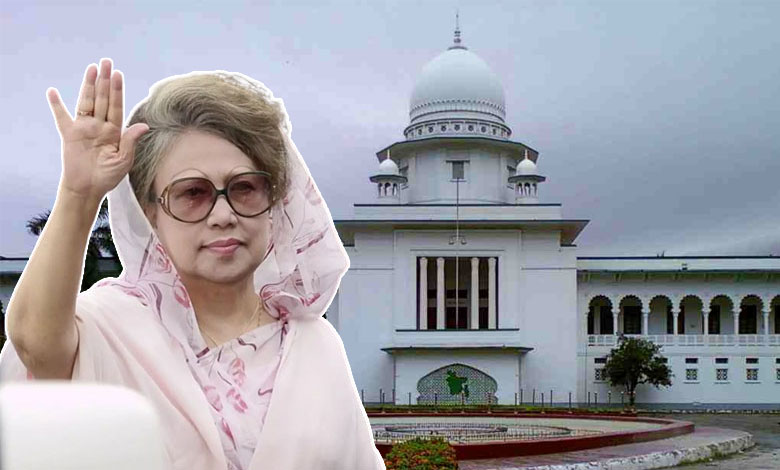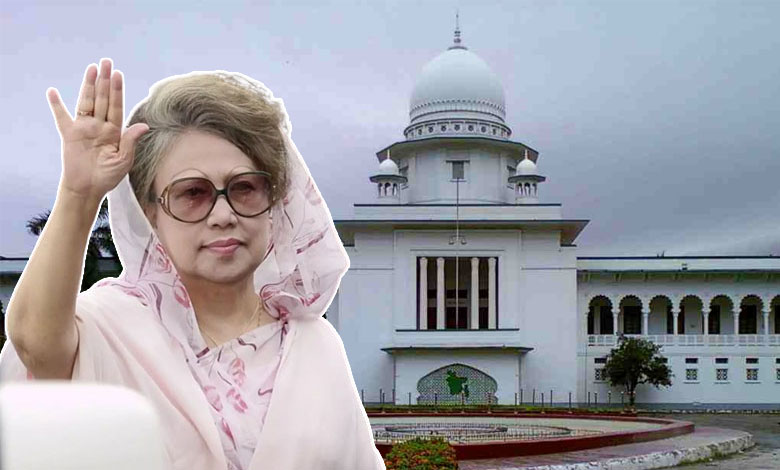Bangladesh Supreme Court Acquits Former Prime Minister Khaleda Zia
The Bangladesh Supreme Court has acquitted former Prime Minister Khaleda Zia in the Zia Orphanage Trust corruption case, overturning her 10-year sentence. This ruling has significant implications for Bangladesh's political landscape.

The Bangladesh Supreme Court has acquitted former Prime Minister Khaleda Zia in the Zia Orphanage Trust corruption case, overturning her 10-year sentence. This ruling has significant implications for Bangladesh’s political landscape.
Dhaka: The Bangladesh Supreme Court delivered a major ruling on Wednesday, acquitting former Prime Minister and BNP Chairperson Khaleda Zia in a corruption case. The court’s decision overturned the earlier 10-year prison sentence handed down by the High Court, marking a significant legal victory for Zia.
Table of Contents
Supreme Court‘s Verdict and Appeal Process
The verdict was announced by a bench led by Chief Justice Dr. Syed Refaat Ahmed, following a review of the 79-year-old Zia’s appeal. The court found merit in the appeal, ultimately acquitting Zia, along with her son Tarique Rahman (the BNP’s Acting Chairman), and all other suspects involved in the Zia Orphanage Trust graft case.
Also Read: US President Joe Biden Releases Farewell Letter as Trump Inauguration Approaches
According to the Dhaka Tribune, the Appellate Division emphasized that the case against Zia appeared to have been motivated by personal revenge.
Background of the Corruption Case
Zia had been convicted on February 8, 2018, by Dhaka’s Special Judge Court-5, which sentenced her to five years in prison for alleged embezzlement of government funds through the Zia Orphanage Trust. The same ruling also imposed a 10-year rigorous imprisonment sentence on five other accused individuals, including Tarique Rahman and former chief secretary Kamal Uddin Siddiqui, and fined each of them Tk 2.1 crore.
However, Tarique, Siddiqui, and Zia’s nephew Mominur Rahman have remained absconding, and their whereabouts are unknown.
Appeal and High Court Ruling
Zia filed an appeal to the High Court challenging the original verdict. On October 30, 2018, the High Court increased her sentence to 10 years. Following this, Zia sought a leave-to-appeal petition, and after delays in legal procedures and lack of initiative from her legal team, the Appellate Division finally accepted the petition on November 11, 2024.
The court stayed the High Court’s 10-year sentence pending the final hearing, and after the conclusion of the hearing, the Supreme Court announced its decision to acquit Zia, clearing her of all charges in the case.
Zia’s Health and Political Background
Zia, who has faced ongoing health issues, traveled to London earlier this month for medical treatment. She served as Bangladesh’s Prime Minister twice—first from March 1991 to March 1996, and then from June 2001 to October 2006. The ruling is likely to have significant political implications for the country, as Zia remains a key figure in the opposition BNP.
This acquittal is expected to bolster the political standing of Zia and the BNP, which has been grappling with internal challenges and political competition from the ruling Awami League.

